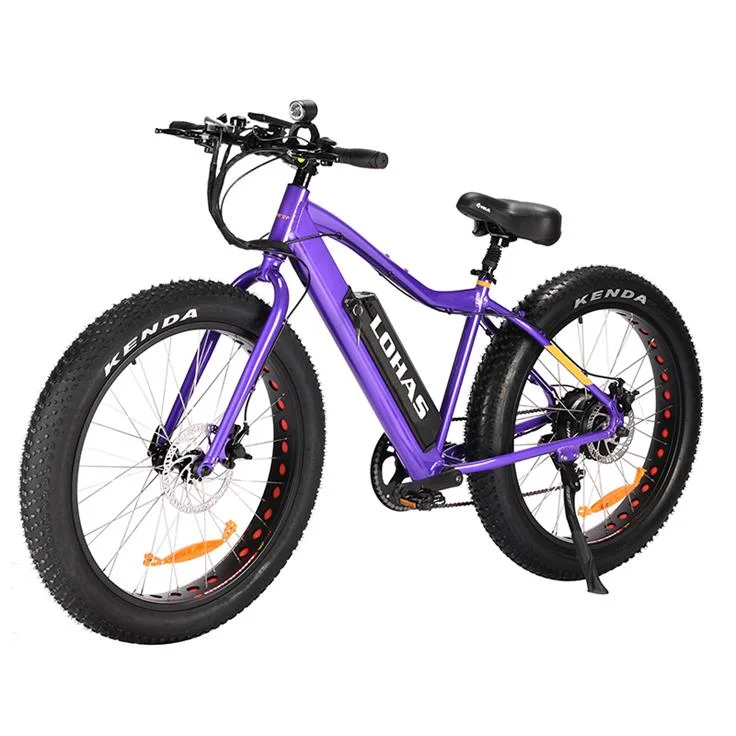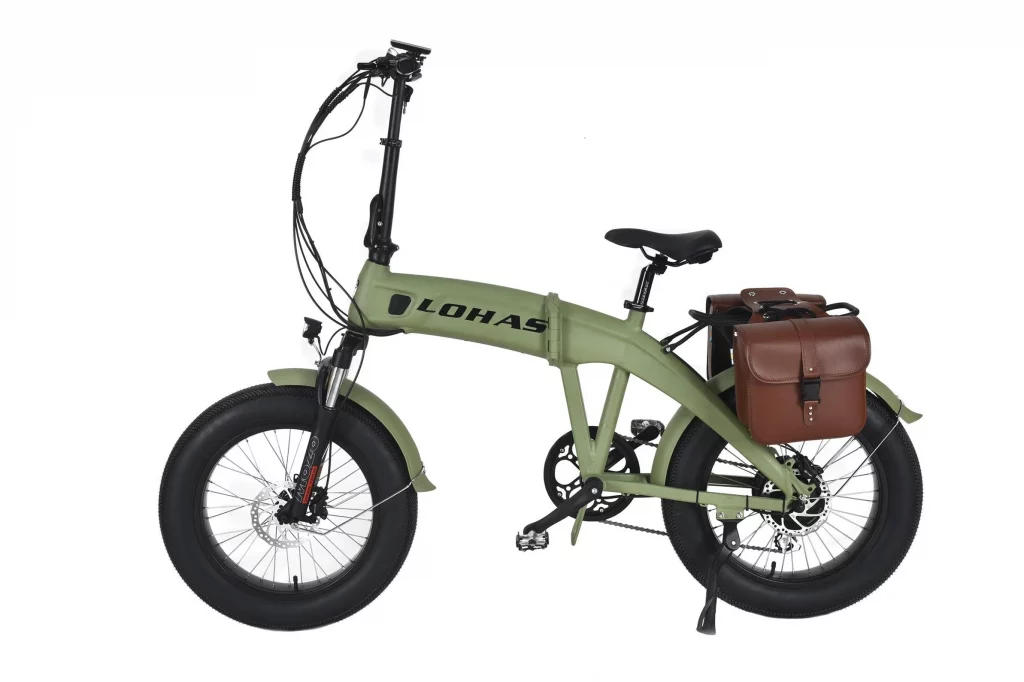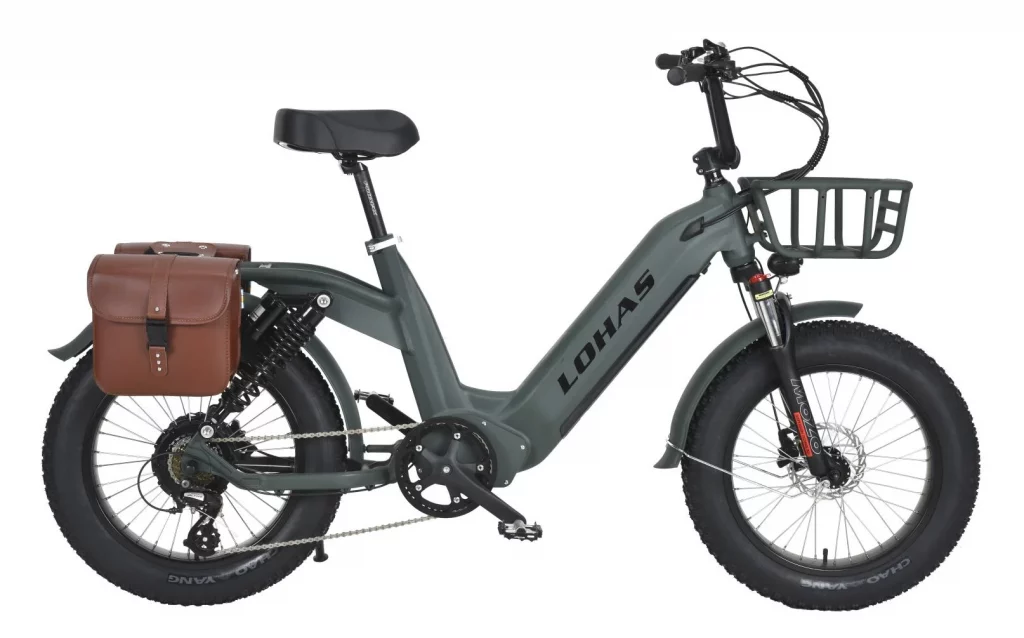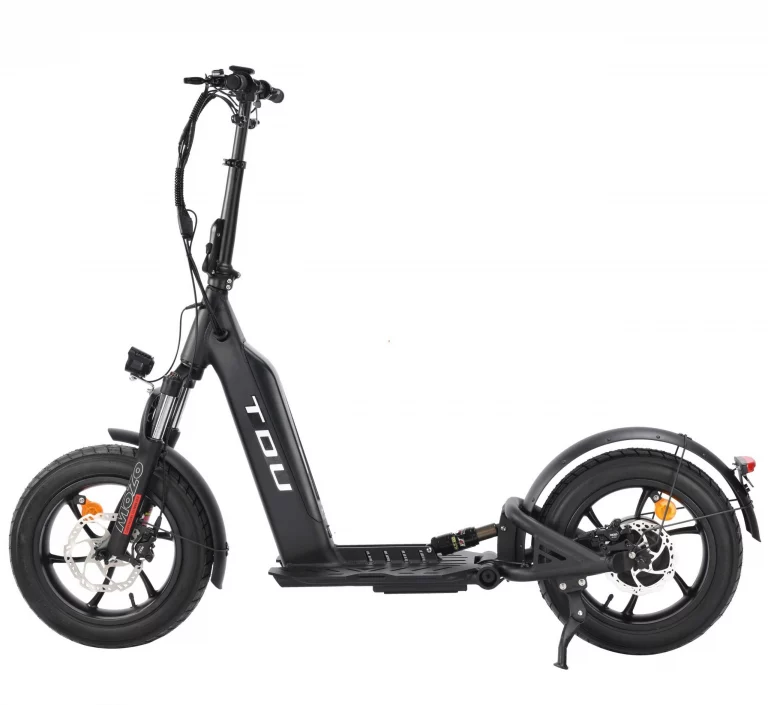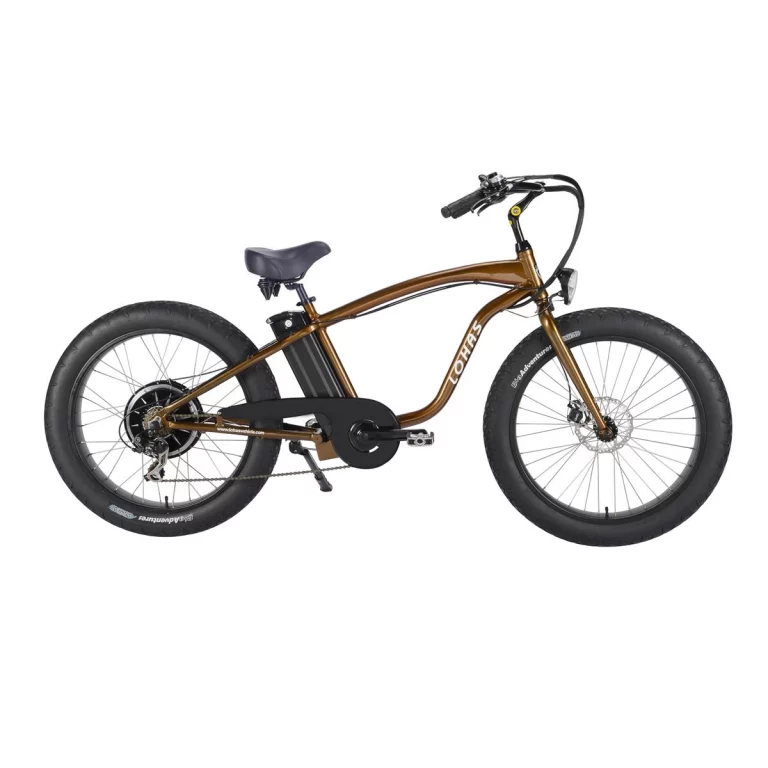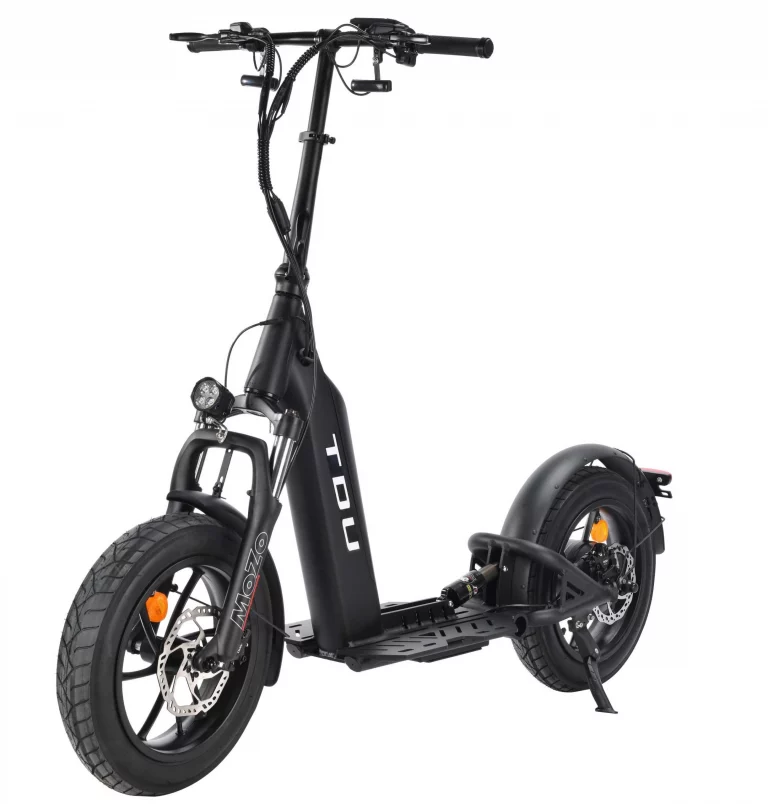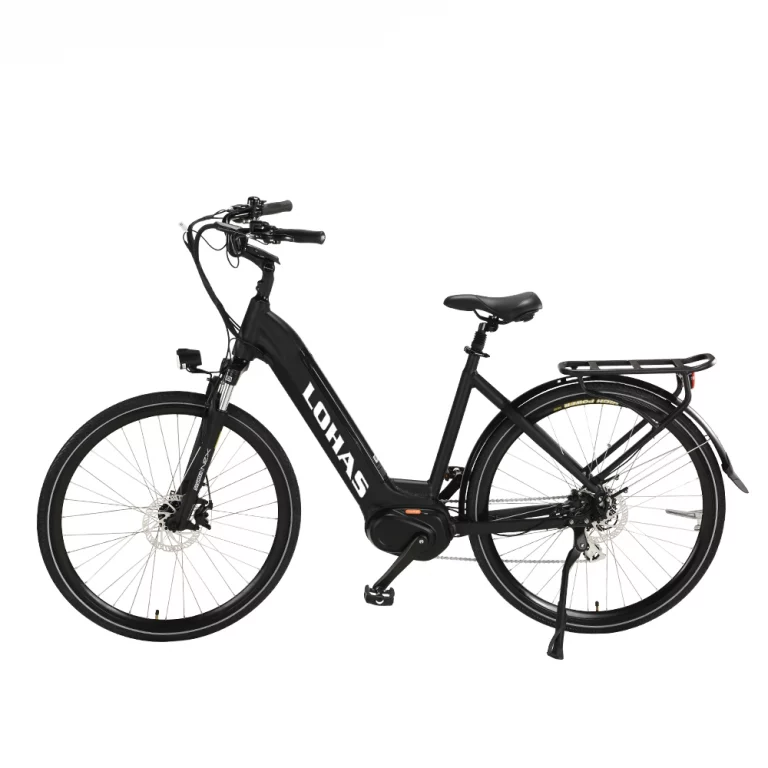Electric bikes, better known as e-bikes, are the new craze and rapidly gaining popularity as alternatives to conventional modes of transport like cars and motorcycles. With growing concerns over environmental sustainability, traffic congestion, and increased fuel costs, e-bikes are proving to be a very worthy solution. E-bikes are normally powered by rechargeable batteries, fitted out with powerful motors, and offer a much cleaner, greener form of transportation. But add to that the benefits of convenience and fun, and it is an exciting mode of transport. The following article looks at the environmental effects of e-bikes, why they are among those major players in carbon footprint reduction, and how e-bike businesses, like Yongkang LOHAS Vehicle Co., Ltd., help pave the way for a sustainable future.
How E-Bikes Can Reduce Carbon Emission
One of the strongest points that go in favor of e-bikes is that they can drastically reduce carbon emissions. According to the European Cyclists’ Federation, e-bikes emit as much as 80% less than cars, even considering the production and charging of batteries. For example, a classic car emits about 192 grams of CO2 per kilometer, while an electric bicycle emits just 22 grams per kilometer.
The Science Behind E-Bike Sustainability
E-bikes are powered by rechargeable lithium-ion batteries that have absolutely no tailpipe emissions, making them so much cleaner than gasoline-powered vehicles in their own right. E-bikes deploy electric motors whose power consumption ranges upwards of 250W and 750W, depending on the model in use-a factor that makes them highly energy-efficient.
Unlike cars requiring large volumes of fossil fuel, e-bikes draw their energy from clean renewable sources when charged by solar or wind sources, greatly bringing down their environmental footprint. The International Transport Forum (ITF) recently said that swapping car trips with e-bikes could emit less than half of the emissions from conventional travel by car. In these, as cities and countries are ambitious about meeting their climate objectives, e-bikes thereby offer an immediate important solution to cut emissions.
E-Bikes vs. Traditional Cars: A Side-by-Side Comparison
Energy Consumption and Efficiency
Traditional cars, even those of the most fuel-efficient models, require by far more energy to travel than e-bikes do. The average e-bike uses about 0.5 kWh per 100 kilometers, while a typical car uses about 6.5 kWh per 100 kilometers. It follows that the energy efficiency ratio makes them attractive alternatives for environmentally conscious commuters.
Additionally, the manufacturing of e-bikes requires much less energy input compared to car production. That is, since electric cars still require heavy batteries, a very complicated process has been adopted; compared with that, the motor and frame used in an e-bike, as both are so light in build, use much less amount of energy in creation.
Lessened Pollution and Noise
Cars are a huge source of air and noise pollution; their smog contributes to respiratory problems and health effects of noise in urban areas. E-bikes give off no air pollution, and their motors run extremely quietly, thus helping in furthering a quieter and healthy city environment. In such scenarios, e-bikes come in handy for the highly populated areas that face huge challenges of noise and air pollution.
Greener Manufacturing Process: Production of E-Bikes
While the energy consumed to produce e-bikes is much lower compared to cars, the manufacturing process of their components uses a lot of material; it is said that most firms try to reduce their impact as much as possible.
For instance, Yongkang LOHAS Vehicle Co., Ltd. commits itself to deploying state-of-the-art manufacturing equipment and techniques in producing quality e-bikes while always taking care of the protection of the environment in the focus of their activity. Their 18,000 square meters factory is oriented toward minimal waste in production. LOHAS has invested in eco-friendly materials, and their Aluminum Alloy 6061 frames, used in their KCMTB045 and KCMTB038 e-bike models, are not only lightweight and durable but also recyclable.
By manufacturing from frames to batteries in-house, LOHAS ensures that at every step, from design to assembly, sustainability is considered.
E-Bikes: Promoting Green Commuting in Urban Areas
Most cities in the world have been promoting cycling and e-bikes over the last few years within their transport infrastructure. E-bikes provide an environmentally friendly alternative to daily travel, thus reducing congestion, decreasing dependency on fossil fuels, and cutting down urban pollution.
The European Cyclists’ Federation says more than 50% of car trips made in Europe cover less than 5 km, distances that can easily be done with an e-bike. E-bikes are also allowed on most bike lanes and paths, especially in the centers of urban cities, thereby offering more efficiency than cars while making cycling even safer for those pedaling.
Public transportation, cycling, and walking have been promoted in many cities, such as Copenhagen and Amsterdam, and recently also e-bike facilities. According to the ITF, this could result in a 60% reduction in emissions from urban traffic by 2050 through the full pedestrianization of city centers and the introduction of cycling-friendly policies.
Battery Lifecycle and Recycling: Ensuring Sustainability
One of the major concerns on the environmental impact of e-bikes is in the production and disposal of their lithium-ion batteries. While these batteries are much cleaner than conventional gasoline-powered car engines, they still contain raw materials such as lithium, cobalt, and nickel, which have their own environmental and ethical concerns if mined unsustainably.
However, many e-bike manufacturers do not lag behind and try to save the situation. So, LOHAS uses removable lithium-ion batteries for their bikes. Such batteries are much easier to recycle and replace afterward. Besides, the company stresses sustainable disposal of old batteries and invites its customers to return old batteries to a recycling center for recycling.
To further alleviate such concerns, LOHAS works only with certified supplies that can prove industry-wide standards on sustainable mining processes, thereby guaranteeing material sourcing of the bikes at ethical standards.
How E-bikes Would Incentivize Green Economies: Sustainable, Cheaper to Travel
Besides the environmental advantages, e-bikes do contribute largely to economic benefits for both consumers and businesses. Especially when considering running costs, an e-bike has relatively lower operational costs compared to cars. The estimated average cost for charging a full e-bike battery is as low as $0.10 to $0.20, thus very cost-effective for transportation.
Added to this are the thousands of dollars in savings a year on gas, parking fees, and maintenance. With the growth of e-bike infrastructure and innovative designs and productions by companies such as LOHAS, ebikes should be more and more affordable and accessible.
The Future of E-Bikes: Advancing Towards a Greener Tomorrow
Thus, it is an industry that will no doubt be very active for the coming years as more and more governments worldwide begin clamoring for cleaner, more sustainable means of transportation. According to a report from Allied Market Research, high demand for green transportation solutions and improvements in e-bikes technologies drive projections for the global e-bike market to $46.04 billion by 2030.
Meanwhile, companies like LOHAS are pioneering an electric bike that is continuously remodeled for efficiency, resilience, and eco-friendliness. LOHAS insists on innovative design and high-quality manufacturing, maintaining a leading position in the development of e-bikes and pedaling customers toward a greener, more sustainable future.
Conclusion: Embracing a Sustainable Future with E-Bikes
E-bikes are not a passing fad but form the most vital part of our solution to the world’s environmental crises. While improving air quality, reducing carbon emissions, and mitigating urban congestion, e-bikes have come to build a greener, more sustainable future. Companies like Yongkang LOHAS Vehicle Co., Ltd. set standards in terms of sustainability at all ends of the production line of the e-bike, from manufacturing to product design.
E-bikes will help consumers and businesses both have a much more pronounced effect on reduction in their carbon footprint. As the technology gets better and more people accept the technology, ebikes will obviously play an ever-more-important role in how urban mobility works, ultimately to protect the planet for our children.
To those enterprises willing to invest in such ecologically friendly transportation, the LOHAS Company represents its lines of e-bikes with series as good as KCMTB045 and KCMTB038. When you buy a motorized bike from LOHAS, you get something much more than just transport-you invest in a cleaner, greener future for everybody.
By optimizing this article with relevant SEO-friendly keywords like “environmental impact of e-bikes,” “sustainable transportation,” “green commuting,” and “electric bike manufacturers,” we are offering wider reach for companies like LOHAS to create better awareness and attract traffic toward their products.

